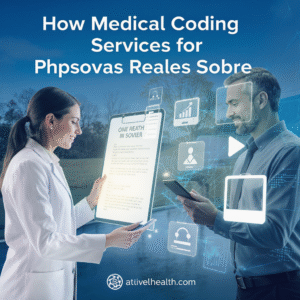Decoding the False Claims Act: What Every Provider Must Know
False Claims Act
The False Claims Act (FCA) stands as one of the most powerful tools in the federal government’s arsenal for combating healthcare fraud. For healthcare providers, understanding this complex piece of legislation isn’t just advisable—it’s essential for survival in today’s regulatory environment. With penalties that can reach millions of dollars and the potential for criminal prosecution, the stakes couldn’t be higher.

Understanding the False Claims Act: A Historical Perspective
Originally enacted during the Civil War in 1863 to combat fraud by military contractors, the False Claims Act has evolved into a comprehensive framework for addressing fraud across all government programs. The modern version, significantly strengthened by the 1986 amendments, has become particularly relevant to healthcare providers who participate in federal programs like Medicare and Medicaid.
The Act operates on a simple but powerful principle: anyone who knowingly presents false or fraudulent claims for payment to the government can face severe penalties. However, the devil lies in the details, particularly in how courts interpret terms like “knowingly” and what constitutes a “false” claim.
Key Provisions Every Provider Should Understand
The Knowledge Standard
One of the most critical aspects of the FCA is its definition of “knowingly.” Under the Act, a person acts knowingly if they have actual knowledge of the falsity of information, act in deliberate ignorance of the truth or falsity of information, or act in reckless disregard of the truth or falsity of information. This means providers cannot simply turn a blind eye to potential compliance issues.

The knowledge standard doesn’t require specific intent to defraud the government. This lower threshold means that providers who should have known about billing irregularities can still face FCA liability, even if they didn’t intend to commit fraud.
What Constitutes a False Claim
False claims under the FCA can take many forms in healthcare settings. Common examples include billing for services not rendered, upcoding procedures to receive higher reimbursement, billing for medically unnecessary services, and submitting claims that violate the Stark Law or Anti-Kickback Statute.
Importantly, the FCA covers not just explicitly false statements but also claims that are legally false due to non-compliance with statutes, regulations, or contractual terms. This means that even if a service was actually provided, the claim could still be considered false if it violates applicable laws or regulations.
Penalties and Damages
The financial consequences of FCA violations are severe. Current penalties range from $13,508 to $27,018 per false claim, plus treble damages. For large healthcare systems submitting thousands of claims, these penalties can quickly reach hundreds of millions of dollars.
Beyond monetary penalties, FCA violations can result in exclusion from federal healthcare programs, effectively ending a provider’s ability to serve Medicare and Medicaid patients. Criminal prosecution is also possible in cases involving willful fraud.
The Whistleblower Component: Qui Tam Actions
One of the FCA’s most distinctive features is its qui tam provision, which allows private individuals (called relators) to file lawsuits on behalf of the government. These whistleblower cases represent the majority of FCA actions and can be particularly challenging for healthcare providers.
Qui tam relators, often current or former employees, can receive between 15-30% of any recovery, creating strong financial incentives for reporting potential violations. The government can choose to intervene in these cases or allow the relator to proceed independently.
For healthcare providers, this means that compliance violations could be reported by anyone with knowledge of the organization’s billing practices, including employees, contractors, or even competitors. This underscores the importance of maintaining robust compliance programs and fostering a culture of ethical behavior throughout the organization.
Common Healthcare FCA Violations
Billing and Coding Errors
Systematic billing errors, particularly those that consistently favor the provider, can trigger FCA liability. This includes patterns of upcoding, where providers bill for more expensive procedures than were actually performed, or billing for supplies or services that weren’t provided.
Medical Necessity Issues
Claims for medically unnecessary services represent a significant area of FCA enforcement. Providers must ensure that all billed services meet medical necessity requirements and are properly documented in patient records.
Stark Law and Anti-Kickback Statute Violations
The government increasingly uses the FCA to prosecute violations of other healthcare laws. Claims submitted in violation of the Stark Law’s physician self-referral prohibitions or the Anti-Kickback Statute can be deemed false claims under the FCA.

Documentation Deficiencies
Inadequate documentation can transform legitimate claims into false claims. Providers must maintain comprehensive records that support all billed services and demonstrate medical necessity.
Building Effective Compliance Programs
Given the severe consequences of FCA violations, healthcare providers must implement comprehensive compliance programs. Effective programs typically include several key components.
Written Policies and Procedures
Organizations should maintain detailed, up-to-date policies covering billing practices, documentation requirements, and compliance with applicable laws and regulations. These policies should be regularly reviewed and updated to reflect changes in the regulatory environment.
Regular Training and Education
All staff involved in billing, coding, or clinical care should receive regular training on FCA requirements and organizational compliance policies. Training should be tailored to specific roles and responsibilities and documented to demonstrate ongoing commitment to compliance.
Monitoring and Auditing
Regular internal audits can help identify potential compliance issues before they become systemic problems. Auditing programs should focus on high-risk areas and include both retrospective reviews and prospective monitoring.
Response Protocols
Organizations should have clear protocols for investigating and responding to potential compliance violations. This includes procedures for self-disclosure to government agencies when appropriate and for implementing corrective actions.
The Role of Legal Counsel
Healthcare providers should work closely with experienced healthcare attorneys to navigate FCA compliance. Legal counsel can help interpret complex regulations, develop effective compliance programs, and respond to government investigations.
When facing potential FCA exposure, early engagement with qualified legal counsel is crucial. Attorneys can help assess potential liability, develop response strategies, and negotiate with government agencies to minimize exposure.

Recent Trends and Enforcement Priorities
FCA enforcement in healthcare continues to evolve, with government agencies focusing on emerging areas of concern. Recent trends include increased scrutiny of telemedicine arrangements, particularly following the COVID-19 pandemic, enhanced focus on opioid-related fraud, and greater attention to cybersecurity failures that compromise patient data.
The government has also demonstrated increased willingness to pursue individual liability against healthcare executives and physicians, not just organizational liability. This trend emphasizes the importance of personal compliance awareness for healthcare leaders.
Best Practices for FCA Compliance
Successful FCA compliance requires ongoing commitment and attention to detail. Healthcare providers should regularly assess their compliance programs, stay informed about regulatory changes, and maintain open communication channels for reporting potential violations.

Organizations should also consider the benefits of voluntary self-disclosure when potential violations are identified. While self-disclosure doesn’t guarantee immunity from prosecution, it can significantly reduce penalties and demonstrate good faith efforts to maintain compliance.
The False Claims Act (FCA) serves as a critical federal law protecting government healthcare programs from fraudulent billing practices. Healthcare providers face significant liability for submitting false or misleading claims to Medicare, Medicaid, and other federal programs. Violations can result in substantial penalties, including treble damages and fines up to $23,000 per claim. The Act’s “whistleblower” provisions encourage reporting fraud through qui tam lawsuits, where private citizens can sue on behalf of the government. Common violations include upcoding, billing for unnecessary services, and kickback schemes. Understanding FCA compliance requirements, maintaining accurate documentation, and implementing robust internal controls are essential for avoiding costly legal consequences and protecting your practice’s reputation.
Healthcare providers must understand that False Claims Act violations extend beyond intentional fraud to include “reckless disregard” or “deliberate ignorance” of claim accuracy. This means providers cannot simply ignore red flags or fail to investigate suspicious billing patterns. The Act covers various scenarios including duplicate billing, phantom billing for services never rendered, and billing for medically unnecessary procedures.
The government actively pursues FCA cases through multiple enforcement mechanisms. The Department of Justice recovered over $2.3 billion in healthcare fraud settlements in recent years. Whistleblowers receive 15-30% of recovered funds, creating strong financial incentives for reporting. Healthcare employees, competitors, or patients can all potentially file qui tam suits.
Effective compliance requires establishing comprehensive policies addressing proper coding, documentation standards, and staff training. Regular internal audits help identify potential issues before they escalate. Providers should implement clear reporting mechanisms for compliance concerns and ensure proper oversight of billing practices.

When FCA violations occur, consequences extend beyond financial penalties. Providers may face exclusion from federal programs, effectively ending their ability to treat Medicare and Medicaid patients. Criminal charges can result in imprisonment. Reputation damage often proves equally devastating, affecting patient trust and referral relationships.
Prevention remains the best strategy through proactive compliance programs, regular education, and maintaining detailed, accurate medical records supporting all submitted claims.
The False Claims Act’s reach has expanded significantly through various amendments and court interpretations. The 2009 Fraud Enforcement and Recovery Act broadened the definition of “claim” to include requests or demands for money from government contractors and grantees, not just direct government payments. This expansion affects healthcare providers participating in government-funded research or receiving grants.
Statistical sampling and extrapolation methods allow the government to project fraud findings from small sample sizes across entire billing periods, potentially multiplying penalties exponentially. For example, if auditors find improper billing in 50 out of 100 reviewed claims, they may extrapolate this 50% error rate across thousands of claims, resulting in massive liability calculations.
The “reverse false claim” provision creates liability for knowingly concealing or avoiding obligations to pay money to the government. This includes failing to report and return overpayments within 60 days of identification, transforming retention of excess payments into potential FCA violations.
Healthcare organizations face particular scrutiny in specific areas including emergency department billing, observation versus inpatient status determinations, and compliance with Stark Law and Anti-Kickback Statute requirements. Violations of these regulations can serve as predicates for FCA claims, creating cascading liability risks.
Corporate integrity agreements often result from FCA settlements, requiring extensive monitoring, reporting, and compliance measures for multiple years. These agreements impose significant administrative burdens and ongoing costs while subjecting providers to heightened government oversight.
Modern enforcement increasingly targets healthcare executives personally, holding leadership accountable for organizational compliance failures through individual liability theories and criminal prosecution strategies.
The False Claims Act’s statute of limitations creates complex timing considerations for healthcare providers. Claims must typically be filed within six years of the violation or three years after the government discovers the fraud, whichever is later. However, the “discovery rule” can extend this period significantly, especially when sophisticated billing schemes remain hidden for years through careful documentation manipulation or complex coding practices.
Materiality standards under the FCA require that false statements or omissions be “material” to the government’s payment decision. Recent Supreme Court decisions have clarified that technical violations of regulations don’t automatically constitute FCA violations unless they significantly influence government payment decisions. This creates opportunities for defense strategies focusing on whether specific compliance failures actually impacted reimbursement determinations.
The intersection of FCA enforcement with other regulatory frameworks creates additional complexity. Office of Inspector General exclusions, state licensing actions, and accreditation issues often accompany FCA investigations, creating multiple parallel proceedings requiring coordinated defense strategies. Healthcare providers must navigate simultaneous civil, criminal, and administrative enforcement actions while maintaining operational continuity.
Emerging enforcement trends target specific healthcare sectors including telehealth fraud, laboratory billing schemes, and pharmaceutical kickback arrangements. The COVID-19 pandemic accelerated scrutiny of emergency funding programs, with providers facing investigations related to Provider Relief Fund distributions and Paycheck Protection Program loans.
Effective legal counsel specializing in healthcare fraud defense becomes crucial when FCA investigations emerge, as early intervention can significantly impact case outcomes and potential settlement negotiations with government prosecutors.
Healthcare providers must understand that False Claims Act investigations often begin with data analytics rather than traditional complaints. Government contractors use sophisticated algorithms to identify statistical outliers, unusual billing patterns, and anomalous provider behaviors across massive Medicare and Medicaid databases. These predictive models flag providers whose billing patterns deviate significantly from peer benchmarks, triggering deeper investigative reviews.
The “knowledge” standard under the FCA encompasses three levels: actual knowledge, deliberate ignorance, and reckless disregard for truth. Courts have consistently held that providers cannot avoid liability by deliberately avoiding learning about compliance requirements or ignoring obvious red flags in their billing practices. This creates affirmative duties to investigate suspicious patterns and implement corrective measures when problems are identified.
Recent enforcement actions demonstrate the government’s focus on clinical decision-making processes. Prosecutors increasingly scrutinize whether medical necessity determinations were influenced by financial considerations rather than patient care requirements. This includes examining physician incentive arrangements, productivity bonuses tied to billing volumes, and administrative pressures to increase service utilization rates.
The FCA’s “public disclosure bar” historically limited qui tam suits when fraud was already publicly disclosed through government reports, audits, or media coverage. However, recent amendments have relaxed these restrictions, allowing more whistleblower cases to proceed even when fraud details were previously available through public sources.
Settlement negotiations under the FCA involve complex calculations considering provider cooperation levels, voluntary disclosure timing, remedial measures implementation, and compliance program effectiveness. Providers demonstrating genuine commitment to compliance reform often achieve more favorable settlement terms than those adopting purely adversarial approaches.
The Act’s extraterritorial application affects multinational healthcare organizations, potentially creating liability for overseas operations that indirectly impact U.S. government-funded programs through research collaborations, clinical trials, or pharmaceutical development activities receiving federal support.
The False Claims Act’s civil monetary penalties undergo regular adjustment for inflation, with current maximum penalties reaching $27,894 per false claim as of 2024. When combined with treble damages, individual violations can result in penalties exceeding $100,000 per claim. Healthcare systems submitting thousands of claims monthly face potential exposure in the hundreds of millions of dollars, making compliance programs essential business protection rather than optional regulatory exercises.
Electronic health records systems create both opportunities and risks under the FCA. While EHRs can improve documentation accuracy and coding compliance, they also generate extensive audit trails that government investigators use to identify inconsistencies between clinical notes and billing submissions. Copy-and-paste functionality, template misuse, and automated coding features require careful oversight to prevent inadvertent false claim creation.
The FCA’s application to quality reporting programs adds complexity to modern healthcare compliance. Providers participating in value-based care arrangements, quality bonus programs, and public reporting initiatives face FCA liability for inaccurate quality data submissions. This extends beyond traditional billing fraud to encompass clinical outcome reporting, patient safety metrics, and population health measurements.
Compliance programs must address the FCA’s application to referral relationships and physician arrangements. The Stark Law and Anti-Kickback Statute violations can serve as predicates for FCA claims, creating cascading liability risks. Providers must ensure that medical staff privileges, call coverage arrangements, and professional service agreements comply with federal self-referral restrictions while maintaining legitimate business relationships.
The intersection of FCA enforcement with cybersecurity creates emerging liability areas. Healthcare data breaches potentially triggering HIPAA violations may also constitute FCA violations if providers fail to report security incidents as required or continue billing while knowing their systems lack adequate safeguards for protected health information processing and transmission.
Conclusion
The False Claims Act represents a formidable challenge for healthcare providers, but with proper understanding and preparation, organizations can successfully navigate this complex regulatory landscape. The key lies in developing comprehensive compliance programs, maintaining vigilant oversight of billing practices, and fostering a culture of ethical behavior throughout the organization.
As healthcare continues to evolve, with new delivery models, payment arrangements, and regulatory requirements, FCA compliance will remain a critical concern. Providers who invest in robust compliance infrastructure and maintain ongoing commitment to ethical practices will be best positioned to thrive while avoiding the severe consequences of FCA violations.
Remember, FCA compliance isn’t just about avoiding penalties—it’s about maintaining the integrity of healthcare delivery and preserving the trust that patients and the public place in healthcare providers. By taking FCA requirements seriously and implementing effective compliance measures, providers can protect both their organizations and the patients they serve.



